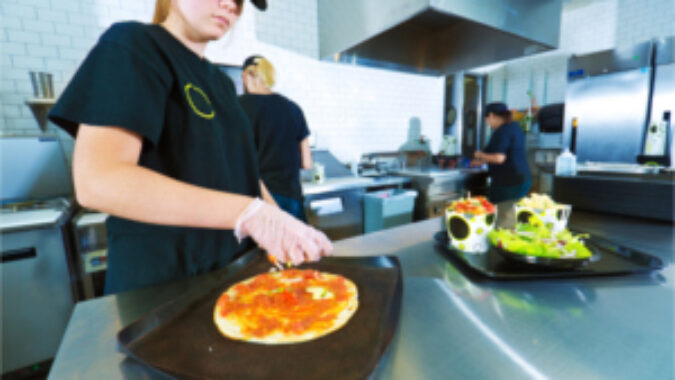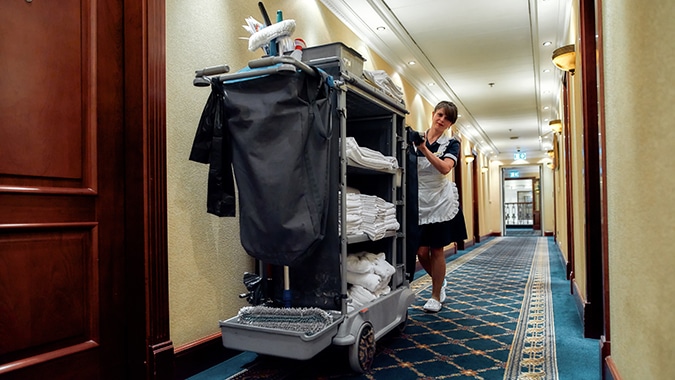 With the exception of those at certain seasonal and very small businesses, the minimum wage on Monday will be $10 an hour for New Jersey workers as the first phase of New Jersey’s $15-an-hour minimum wage kicks in.
With the exception of those at certain seasonal and very small businesses, the minimum wage on Monday will be $10 an hour for New Jersey workers as the first phase of New Jersey’s $15-an-hour minimum wage kicks in.
The current minimum wage is $8.85 an hour.
“Since the minimum wage increase became law, we have been monitoring the impacts of the increase in real time, gathering information on what our members are doing to adjust their business models and relaying that to our policymakers,” said NJBIA President and CEO Michele Siekerka.
Legislators agreed to phase in the increase more slowly for employers with five or fewer employees and seasonal businesses. They will not see an increase in the minimum wage until Jan. 1.
The law defines small employer as a business with five or less employees. To qualify, you must have no more than five employees for the majority of the weeks of the current calendar year and no more than five employees during at least 48 weeks in the previous calendar year. For newly formed businesses, it’s just the number of employees during the majority of the weeks in the current year.
A seasonal business is defined as meeting one of these three conditions:
- Exclusively provide services during a continuous period of not more than 10 weeks between June 1 and Sept. 30;
- Earn at least two-thirds of gross receipts for the previous calendar year during a continuous period of not more than 16 weeks; or
- Pay at least 75% of wages in the previous calendar year for work performed during a single calendar quarter.
NJBIA led the fight against minimum wage and continues to advocate for legislation to mitigate its impacts, particularly on small businesses. The Senate Labor Committee has already approved legislation to provide an employer with a refundable tax credit against the corporation business tax or the gross income tax, as applicable, for the extra wages and payroll taxes paid to a worker under age 18. NJBIA has also called for an “economic off ramp” to suspend minimum wage increases in a severe recession or after a natural disaster, providing tax credits to businesses with 10 or fewer employees, and a requirement to study the impact of the minimum wage increase on the economy.

